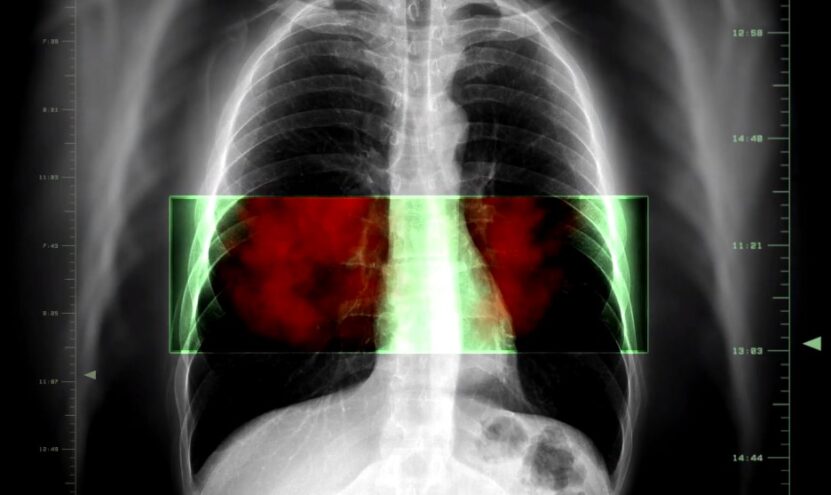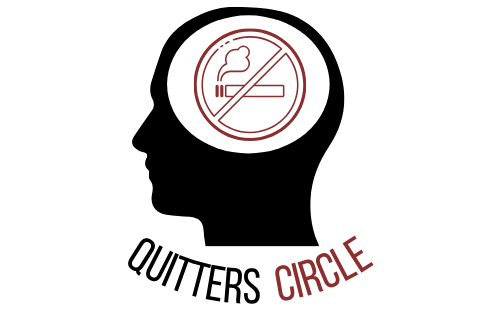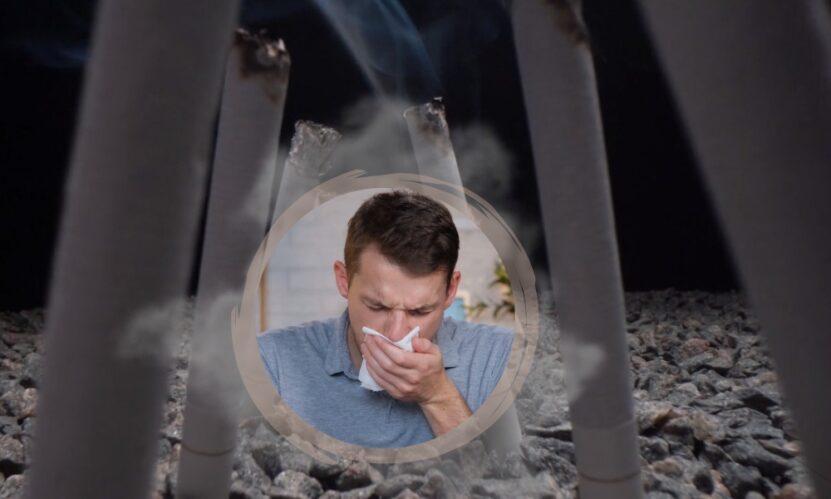Smoking is a habit that has far-reaching health implications, one of which is a condition known as a smoker’s cough. This persistent cough is your body’s way of trying to clear the chemicals introduced into your throat and lungs by smoking. If you’ve ever wondered why your cough seems to worsen in the morning or why it sounds different from a regular cough, this article will provide you with the answers and more.
The Underlying Mechanism of Smoker’s Cough

When you smoke, you introduce a myriad of chemicals into your throat and lungs. Your body, in its wisdom, tries to clear these airways through coughing. This cough, when persistent, is what is referred to as a smoker’s cough. It tends to sound different from a regular cough, often involving wheezing and crackling noises associated with phlegm in your throat. It’s also usually productive, meaning it brings up a lot of mucus and phlegm.
The tiny hair-like structures along your airways, known as cilia, lose some of their ability to push chemicals and other foreign materials out of your lungs when you smoke. This means toxins remain in your lungs for much longer than they normally would, causing your body to cough more to remove these chemicals. This cough can be especially irritating in the morning because cilia regain their ability to remove chemicals from your lungs after a few smoke-free hours.
Connection to Postnasal Drip
Smoker’s cough can also involve postnasal drip, a condition where mucus leaks into your throat. This causes frequent coughing or throat clearing, and it can make your cough worse. It’s important to understand this connection as it can help you manage your symptoms more effectively.
Traditional and Alternative Treatments

The best way to treat smoker’s cough is to decrease the amount you smoke or quit smoking altogether. This removes the cause of the cough. However, if quitting is not an immediate option, there are other traditional ways to help treat your cough. These include using bronchodilators and corticosteroids, which help the muscles around your airways relax and relieve inflammation in your airways, respectively.
Natural and alternative treatments can also be useful in relieving some symptoms of smoker’s cough. For instance, the vapor of certain essential oils, such as eucalyptus, can soothe your throat and relieve symptoms such as inflammation. Herbal supplements like ginger, oregano, and rosemary can also help treat your cough, sore throat, and other symptoms.
Home Remedies and Lifestyle Changes
There are also several home remedies you can try to relieve and treat the discomfort of your cough. Drinking green tea or chamomile tea, using honey in your hot tea or water, taking vitamin C supplements, or drinking liquids with high amounts of vitamin C can all help soothe your throat and reduce irritation.
In addition to these remedies, making certain lifestyle changes can also help manage your smoker’s cough. For instance, maintaining a healthy weight, exercising regularly, and eating a balanced diet can all contribute to overall health and well-being, which in turn can help manage your symptoms.
The Long-Term Implications

Smoker’s cough can last anywhere from a few days to a few weeks, or even indefinitely, depending on how heavily you smoke. If you smoke heavily, your cough may last for months, even after you quit or decrease your smoking. In some cases, you may have a smoker’s cough for years after you quit. This is why it’s so important to seek help if you’re struggling to quit smoking.
Some symptoms of lung cancer aresimilar to those of a smoker’s cough, such as hoarseness and wheezing. This makes it crucial for heavy smokers to be vigilant about any changes in their health and to seek medical advice if they notice any unusual symptoms. Persistent cough, unintentional weight loss, constant chest pain, or coughing up blood are all signs that you should consult a doctor immediately. Early detection of lung cancer can significantly improve the prognosis and treatment outcomes.
Complications
The complications of smoker’s cough can be quite severe, especially if you’re a heavy smoker. These complications can include damage to your throat, a hoarse voice, itching and irritation in your airways, and an increased risk of infections. Long-term smoking can also lead to the build-up of toxic chemicals in your lungs and airways, causing conditions such as pneumonia, bronchitis, emphysema, and lung cancer.
Taking the First Step Towards a Healthier Life

Quitting smoking is the best way to stop a smoker’s cough and prevent any serious conditions. It’s not easy to quit smoking, but it will be well worth your effort to try. Your doctor can help and may refer you to programs that help you quit. You have many options for treating your smoker’s cough and any underlying conditions. There’s plenty you can do at home right away, too, to make sure your cough doesn’t keep you from enjoying your life.
Final Words
In conclusion, smoker’s cough is a clear sign that your body is trying to fight off the harmful effects of smoking. While it can be uncomfortable and even painful, it’s also a wake-up call to take action. Whether it’s cutting down on the number of cigarettes you smoke, switching to a less harmful alternative, or quitting altogether, every step you take towards a smoke-free life is a step towards better health. Remember, it’s never too late to make a positive change in your life.

